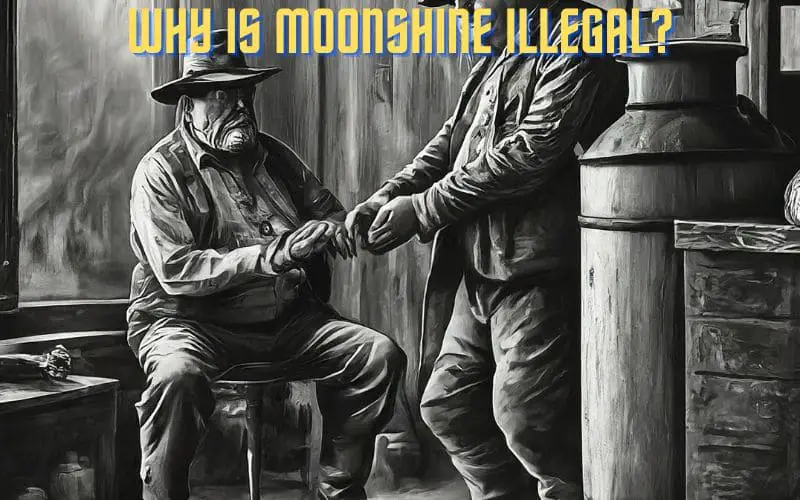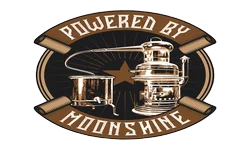Why Is Moonshine Illegal?: The Key Reasons For Its Illegality

Introduction
Moonshine has always held a mysterious allure, capturing the imagination of many as a symbol of rebellion and independence. The illicit production of moonshine has a rich history, intertwined with tales of secret distilleries and bootleggers. In this article, we delve into the reasons behind the illegal status of moonshine, shedding light on its Prohibition-era origins, tax evasion implications, health hazards, and economic impacts. Join us as we uncover the truth behind the forbidden spirits and explore the complex web of laws and regulations that have shaped its destiny.
Prohibition Era: Why Moonshine was Illegal
During the Prohibition Era
During the Prohibition Era, the production and distribution of alcoholic beverages were banned in the United States. Moonshine, often brewed in hidden stills deep in the woods, became a symbol of anti-establishment defiance. Bootleggers ventured into the dark of night to transport their homemade concoctions, challenging the laws that sought to control them. The allure of moonshine during this time represented a rebellion against the strict regulations surrounding alcohol, fueling its notorious reputation as the forbidden spirit of the Prohibition.
- The Rise of Moonshine: Moonshine production skyrocketed during the Prohibition, as people sought alternatives to banned alcoholic beverages.
- Secret Networks: Secret societies and underground networks were established to facilitate the production, distribution, and sale of moonshine.
- Consequences: The illicit nature of moonshine led to the rise of organized crime and law enforcement crackdowns, fueling dangerous and clandestine operations.
Tax Evasion and Moonshine
Evading Taxes on Alcoholic Beverages
Evading Taxes on Alcoholic Beverages
The issue of tax evasion in the production of alcoholic beverages, particularly in the case of moonshine, presents a multifaceted challenge to government revenue and regulatory efforts. The widespread illicit production of moonshine not only circumvents the mandatory licensing and taxation requirements but also operates outside the realm of established regulatory standards for alcohol production. This clandestine activity represents a significant drain on government resources, depriving the authorities of crucial tax income that could contribute to public welfare and infrastructure development.
Moreover, the pervasive nature of moonshine production undermines the financial stability of the legal alcohol industry, creating a competitive imbalance. By evading taxes and operating illicitly, moonshiners gain an unfair advantage over law-abiding producers, thus distorting market dynamics and potentially leading to reduced investment and innovation within the regulated alcohol sector. This disruption in the market equilibrium further exacerbates the impact of tax evasion on the overall economy and tax revenue.
The enforcement of liquor laws to address the issue of moonshine-related tax evasion remains a complex and ongoing endeavor for government authorities. Efforts to curb illegal production and sales of moonshine require a comprehensive approach that addresses not only the immediate fiscal impact but also the broader social and economic ramifications. As such, the impact of moonshine on tax revenue continues to be a critical focal point in the regulatory and enforcement strategies aimed at upholding the integrity of the alcohol industry and preserving government revenue streams.
Health Risks Associated with Moonshine
Impurities and Toxins in Moonshine
Impurities and toxins in moonshine are a serious concern due to the lack of proper quality control measures in its production. When moonshine is distilled illegally, it can contain harmful substances such as lead, methanol, and other contaminants, posing significant health risks to consumers. The absence of established safety standards leads to the presence of impurities and toxins, making the consumption of moonshine a hazardous gamble. This exposure puts individuals at risk of toxic alcohol poisoning and long-term health complications.
The dangers associated with moonshine consumption have led to stringent laws governing its production and distribution. The prevalence of health hazards linked to moonshine consumption emphasizes the importance of protecting public health and safety by enforcing regulations and safety standards.
Economic Impact of Illegal Moonshine
Impact on the Alcohol Industry
The illegal production and consumption of moonshine have far-reaching economic implications for the alcohol industry. By operating outside the legal framework, moonshiners create unfair competition for licensed distilleries and liquor manufacturers. This clandestine activity undermines the economic integrity of the alcohol market, creating an unregulated black market for spirits. The diminished consumer confidence resulting from unregulated moonshine consumption further impacts the revenue and sustainability of legitimate alcohol producers. The economic repercussions of illegal moonshine extend beyond the financial realm, influencing employment opportunities, market stability, and government taxation policies.
Conclusion
Moonshine’s notorious legacy as an illegal spirit is deeply intertwined with historical defiance, tax evasion, health hazards, and economic disruption. Despite its mystique and cultural significance, the prohibition of moonshine reflects ongoing efforts to mitigate its detrimental impacts on society. As we navigate the complex landscape of laws and regulations governing alcohol production, it becomes apparent that moonshine’s clandestine allure carries profound consequences. How might the future balance between regulation and innovation shape the destiny of this forbidden elixir?
